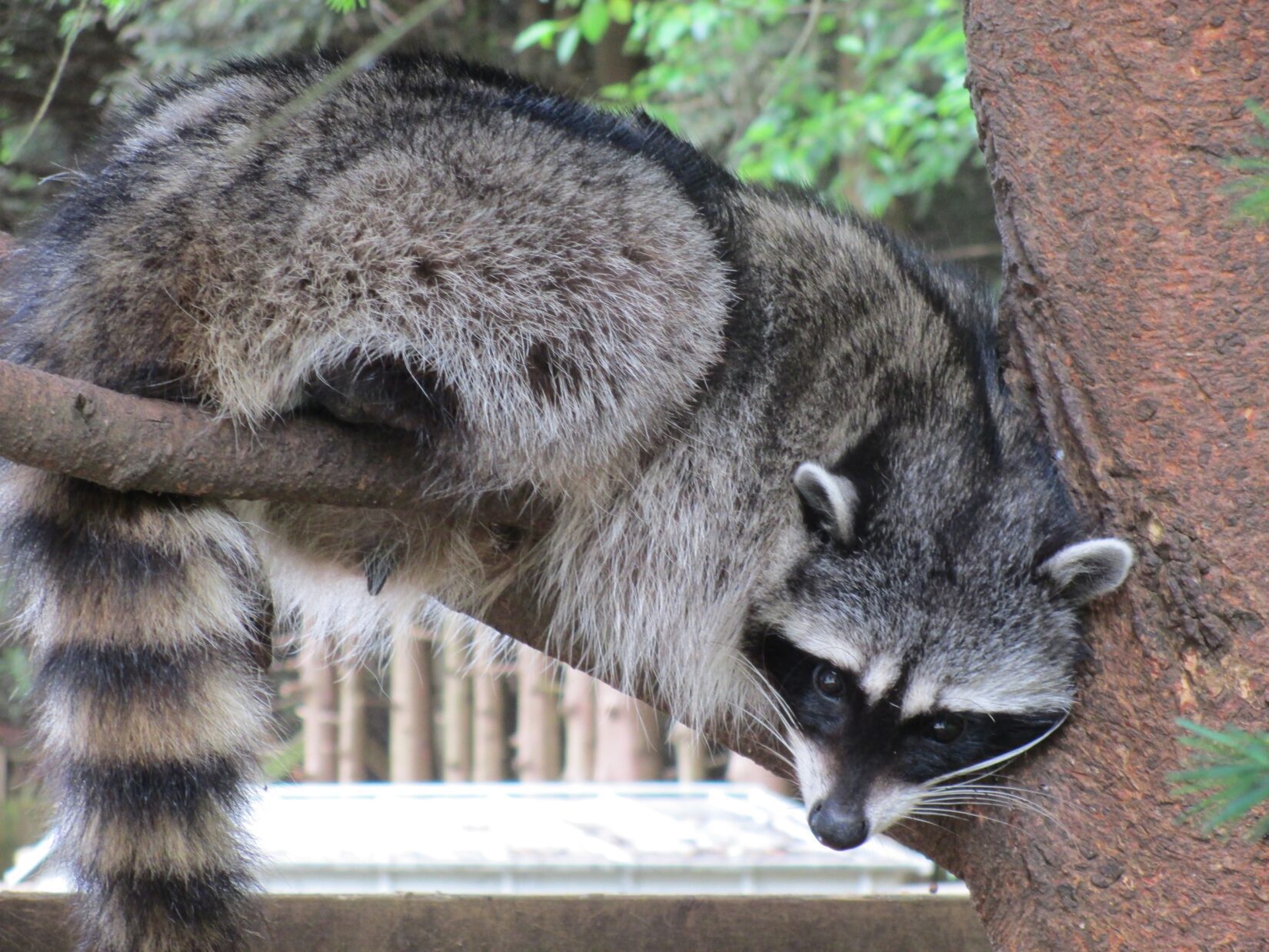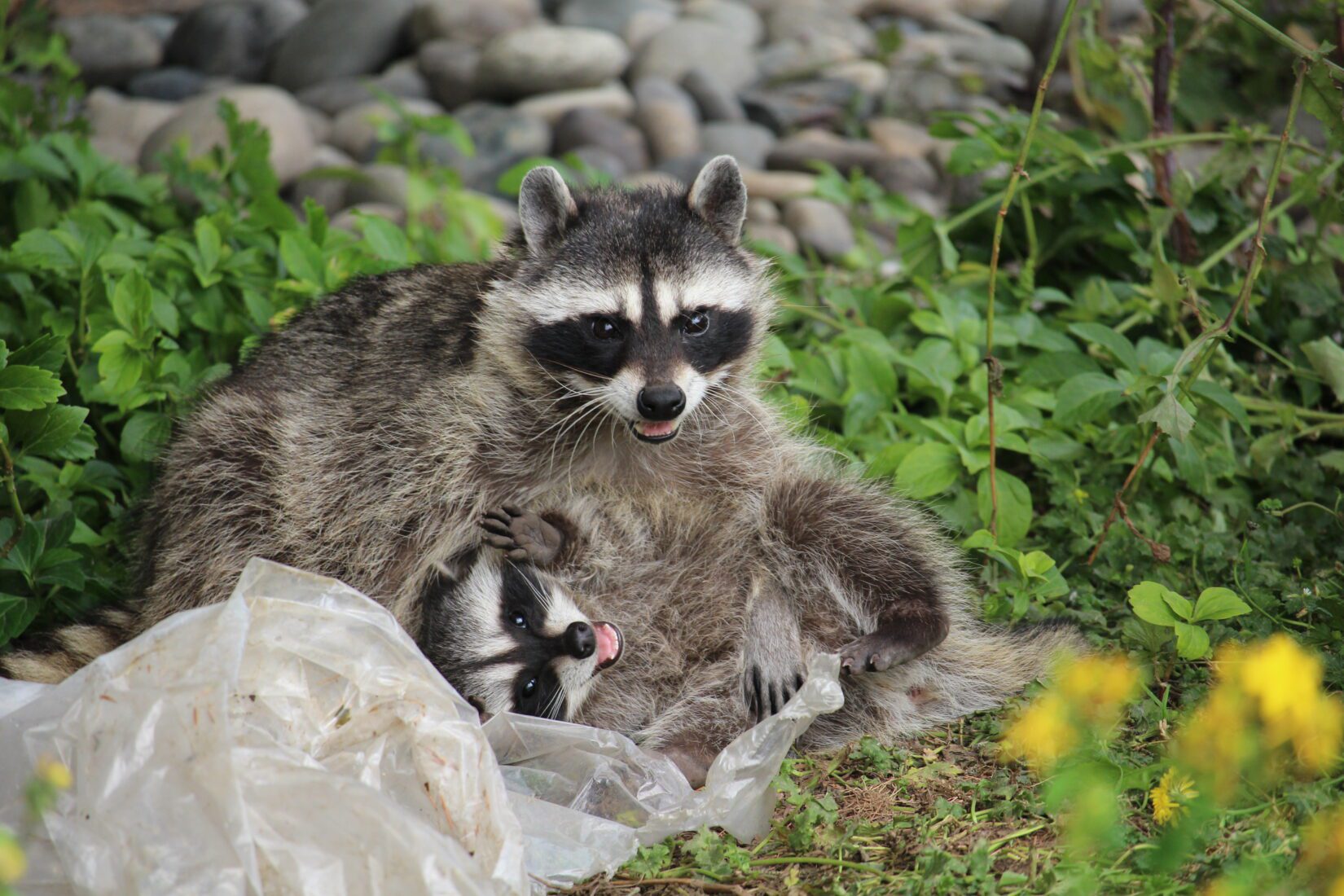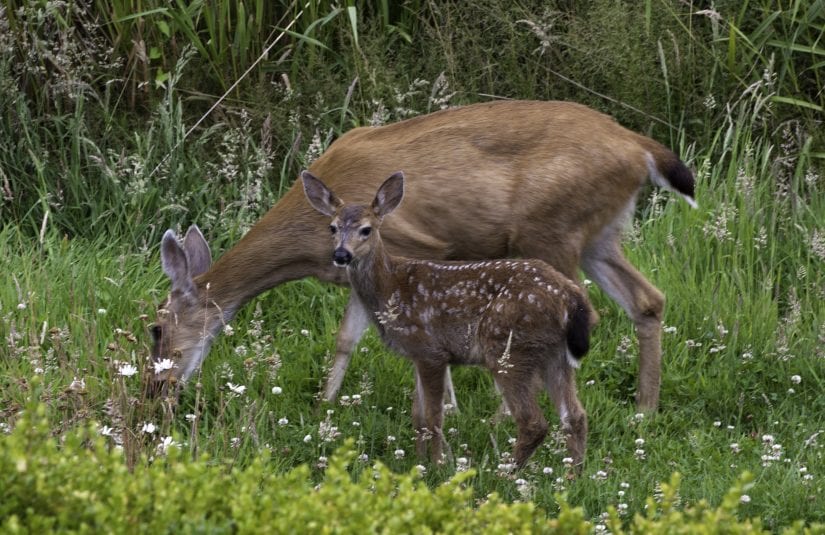Raccoons may establish a toilet or “latrine” site in backyards. Raccoons are not carriers of rabies in B.C., but their poop may contain raccoon roundworm eggs that can be dangerous to people and pets. Try using motion-sensor lights or sprinklers to prevent raccoons from using your backyard as a toilet.

To clean raccoon poop on your property:
Avoid direct contact with the feces, and wear gloves and a face mask for protection. Scoop the feces up using a plastic bag or shovel, close tightly and place in the garbage.
Use heat to kill roundworm eggs:
- Use boiling water to destroy any roundworm eggs on every surface or item that touched the feces.
- If you can’t use boiling water on the surface or item, using a 10% bleach solution will dislodge roundworm eggs so they can be rinsed away.
- Flaming with a propane torch is also effective, but use with caution to avoid injury, damage, or starting a fire. Do not attempt to flame any surfaces that could melt or catch fire, and check the regulations of your local fire department and municipality in advance.
More information on cleaning raccoon latrines (CDC).
If you need help getting a raccoon out of your house, call an AnimalKind company. For more information on managing raccoons, read or print our best practices (PDF).


